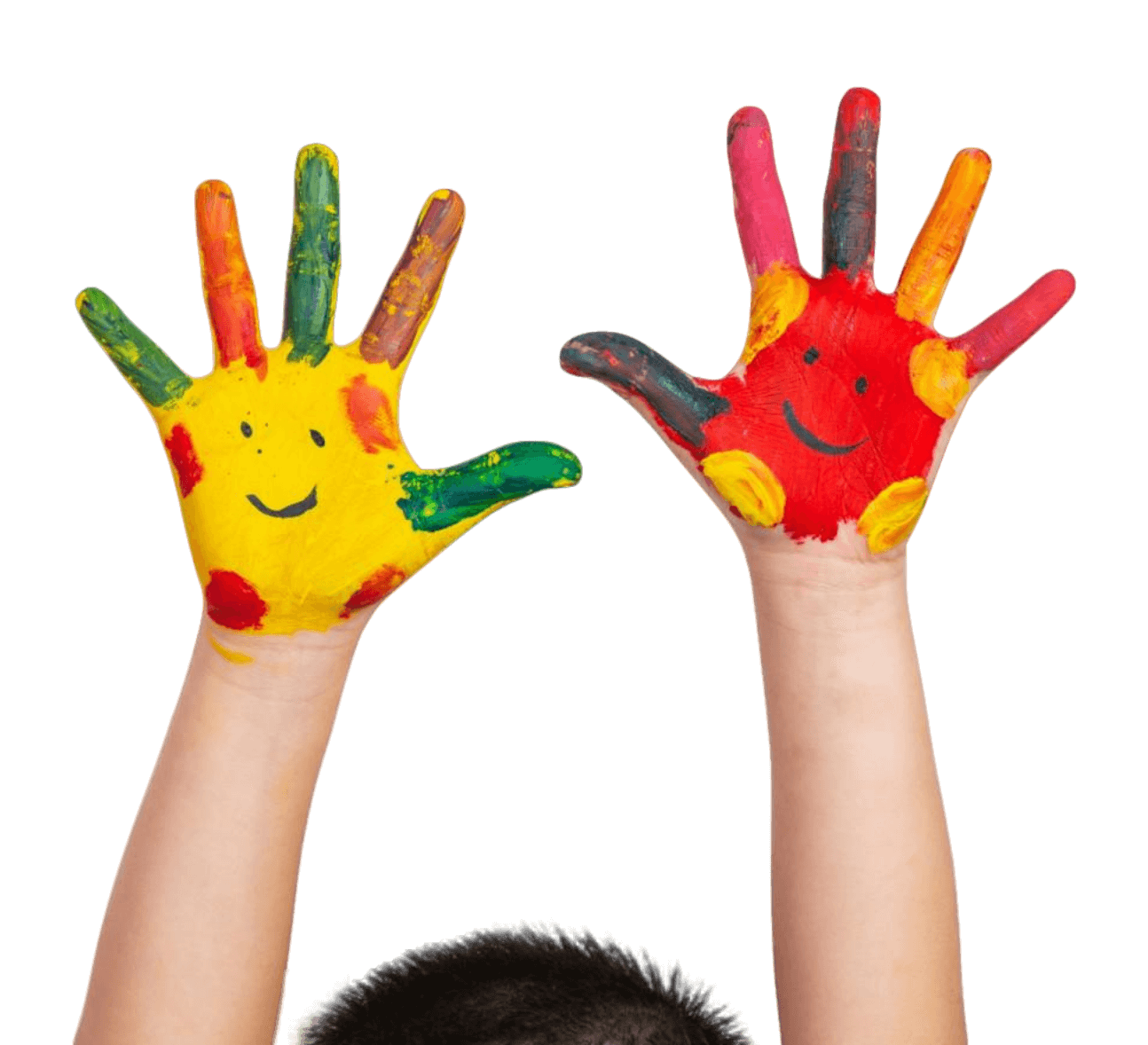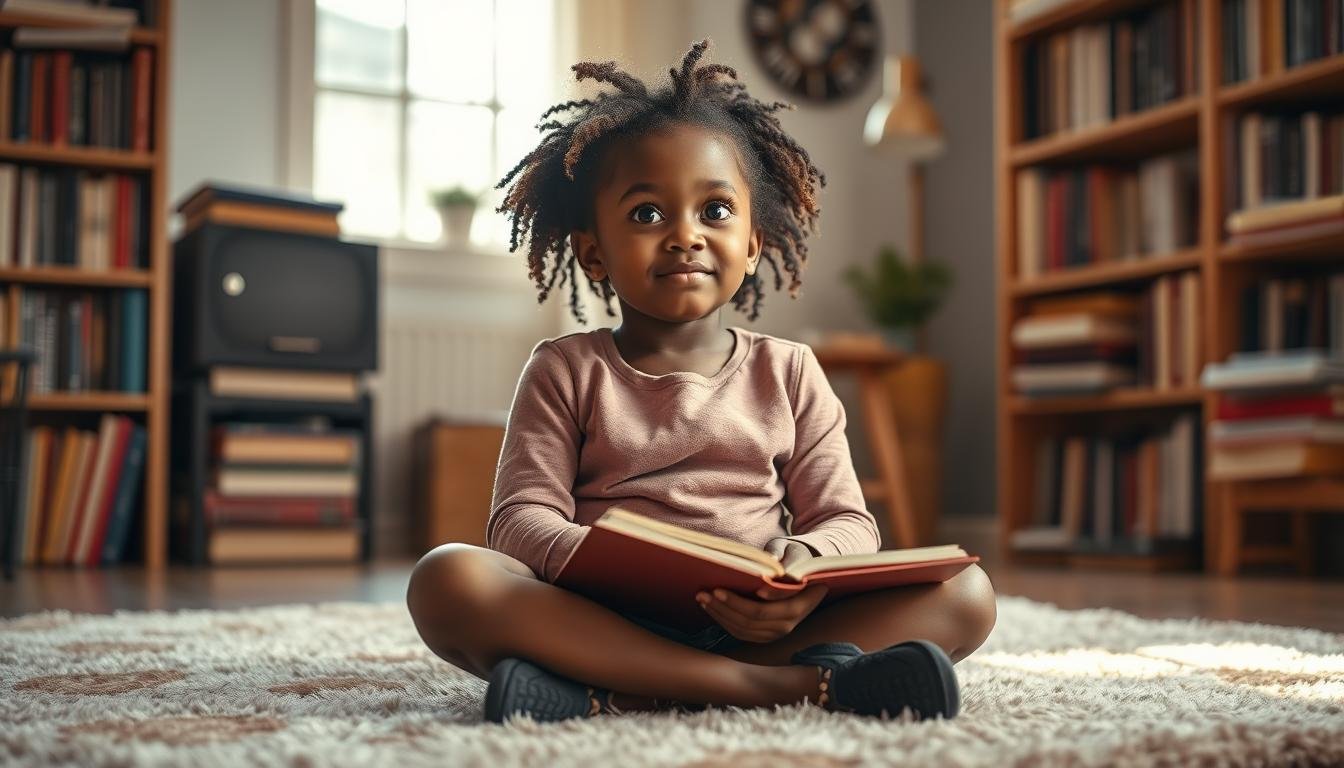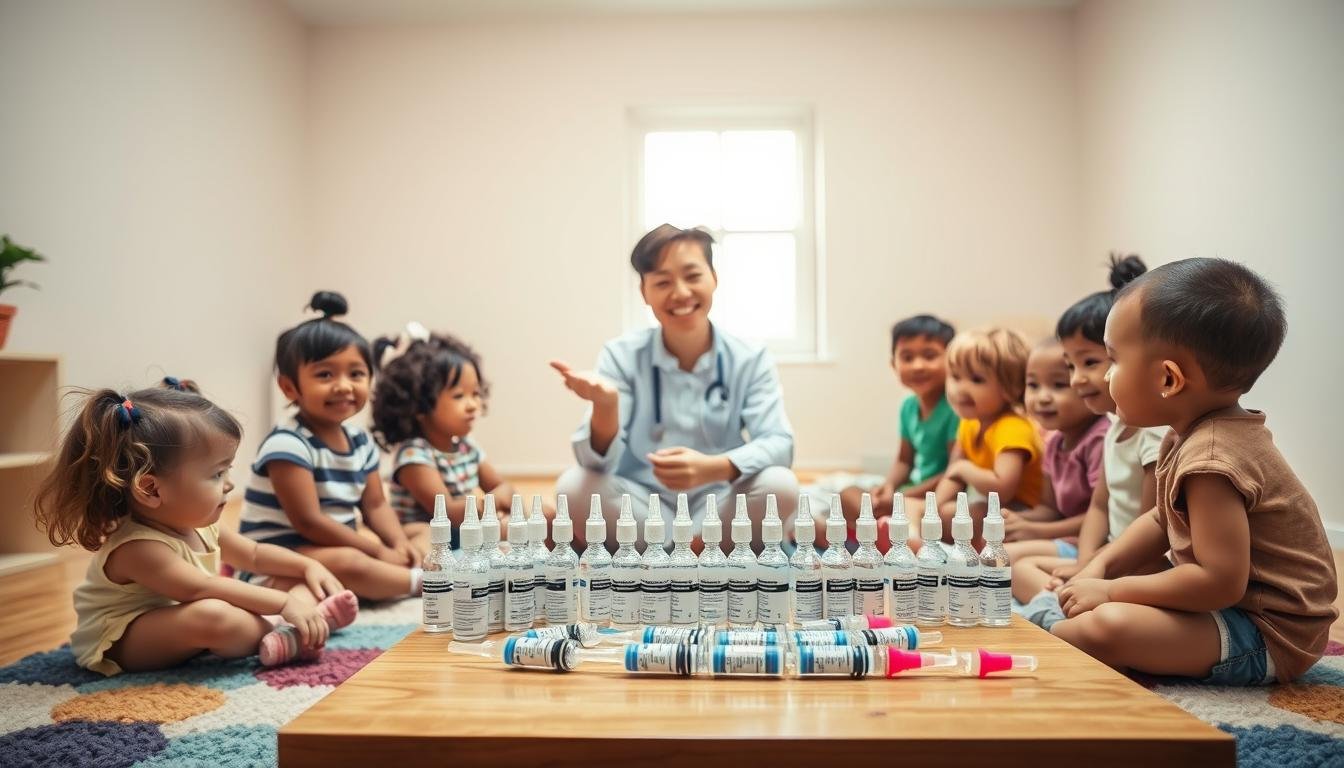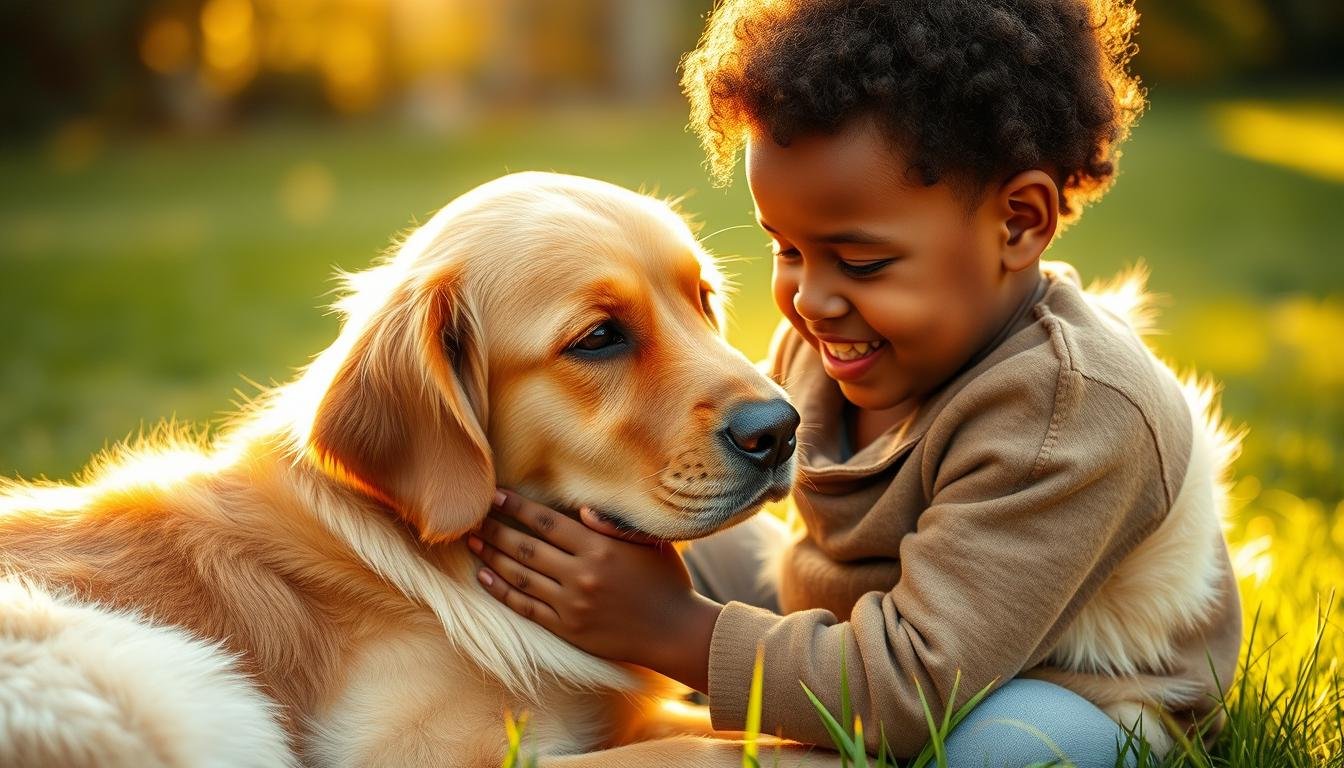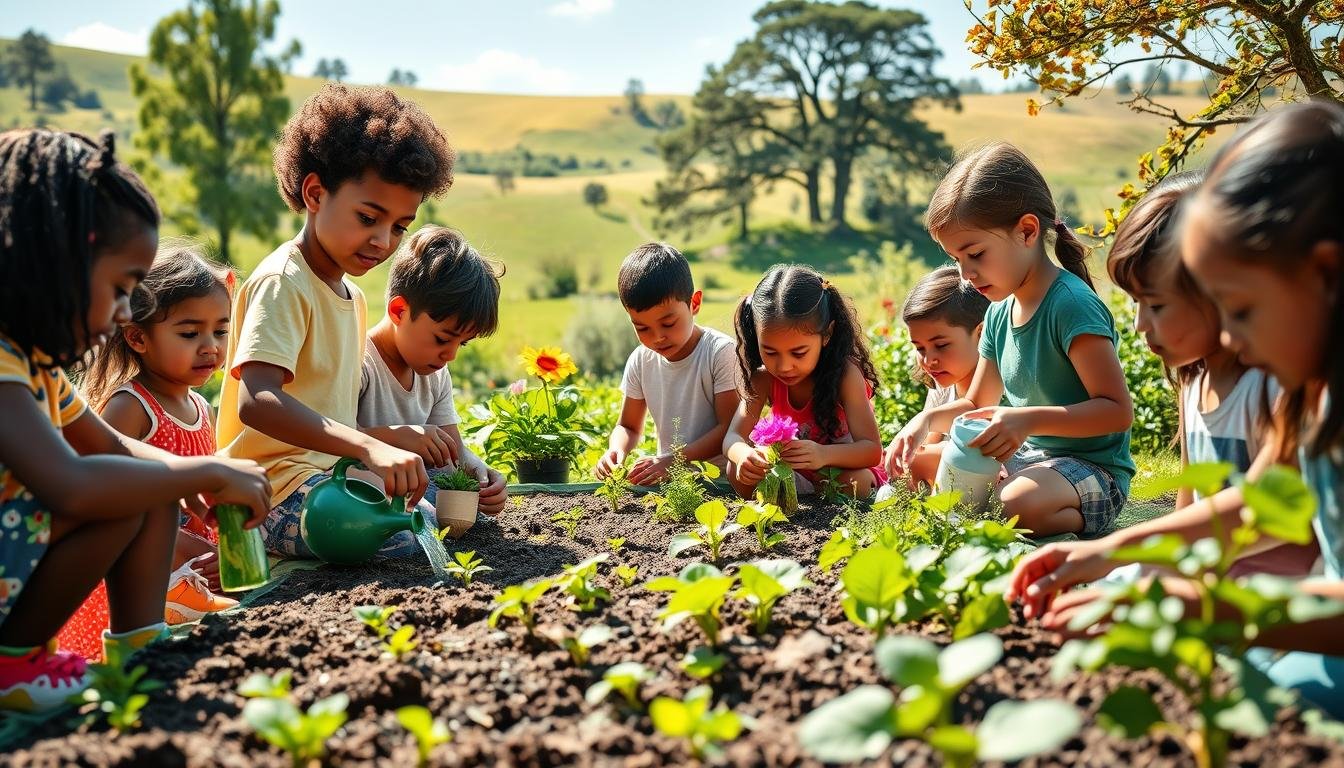Have you thought about what your child sees that you might miss? Sometimes, we’re so busy teaching them, we don’t see the wisdom they offer. They might teach us valuable lessons in their simple, yet deep, way of understanding.
It’s common to think that kids learn from adults. But we grow with them too. Every moment with our child is a chance to learn something new. Even the endless questions of a ten-year-old can teach us something important.
By watching our kids, we learn about trust and the power of being there for them. This helps us grow as adults. Despite our struggles, the lessons we learn from them are more valuable than anything money can buy. Building a strong bond with your child opens up new ways to learn from each other. It allows for deep talks on tough topics like cyberbullying or drugs. It shows us the value of their natural curiosity.
The Unrecognized Expertise of Preschool Teachers
Preschool teachers are key in shaping young minds during early learning years. They do more than care for kids; they use special teaching methods to boost thinking and creativity. By using ideas from experts like Trilling & Fadel (2009), they design lessons that build skills like problem-solving, understanding others, and creativity.
These teachers prepare kids for a world filled with information. They make learning exciting, encouraging kids to be curious and brave. Their classrooms are places where kids can freely explore, helping them grow into smart, thoughtful learners.
They also pay close attention to kids’ feelings and how they get along with others. Research shows that in creative and supportive classrooms, kids develop better emotionally and socially. Preschool teachers mix fun experiences with daily lessons, which helps kids learn important life skills. This could mean anything from teaching toddlers to use the potty to helping them handle their feelings and stay clean.
So, preschool teachers have a big, important job that deserves more recognition. Even with long hours and low pay, they are committed to starting kids off right in life. To sum up, their skill in teaching young kids is very precious and should be valued more.
How Educational Systems Stifle Curiosity
We strive to support our children’s curiosity, but traditional education systems pose significant challenges. These systems, deeply influenced by traditional education limitations, often focus on memorization over exploring curiosity in schools. This focus dulls kids’ desire to explore and learn about the world.

School systems usually rank subjects in a rigid hierarchy. Math and languages are highly valued over arts and the humanities. This approach limits exploration and promotes conformity. Corporal punishment in schools, used in 69 countries including the US, instills fear instead of promoting learning. This fear stops students from asking questions or challenging ideas.
We need to rethink and redesign education to foster curiosity. Creating environments where mistakes are part of learning is key. UNESCO aims for inclusive, quality education for all, highlighting the need to nurture students’ curiosity.
Our education system, designed for the industrial age, does not meet our future’s needs. We must evolve our teaching to match kids’ natural curiosity. This evolution is vital for their growth and society’s advancement. By supporting curiosity, we inspire a future of innovation and understanding, moving past outdated educational systems.
Your Child Teach You Something New
Being parents puts us on a special journey with our kids. It’s full of surprises and beautiful lessons that touch our hearts. When raising children with special needs, these lessons become even more profound. They introduce us to unique ways of seeing the world that enrich and challenge our views.
Our journey over the years has shown us how to love unconditionally and learn emotionally. Kids bounce back fast, forgiving and forgetting in minutes. This resilience teaches us about forgiveness’s power. It’s vital in friendships and work relationships.
Children also teach us to enjoy life’s simpler moments. They might be slow in doing tasks, yet they show us the worth of every second. It’s about loving the small things, like jumping in puddles or playing without worrying about messes. These moments bring joy and lessons every day.
Stories from insightful parents show us that our kids teach us a lot. We see our homes as places where failing is okay because it’s part of learning. We learn important life skills, like swimming or keeping the house neat. These tasks may be tough but they make us stronger. Our homes become like the therapy settings where kids learn lots. They try out many skills in a setting they know well.
Talking with our kids about people’s differences teaches us about diversity and respect. Their questions about how people look or act open discussions about being accepting and kind. This helps us raise kids who not only know a lot but also care deeply about others, making a community of respect.
Every moment with our kids is a chance to learn and grow together. They remind us of basic kindness, curiosity, and empathy. Together, we build a world rich with wider views and deep connections.
Lessons from Effective Prekindergarten Classrooms
The early years are crucial in shaping children’s attitudes towards learning. It’s during this time that sparking their curiosity is key. Effective prekindergarten classrooms use a mix of innovation and interactive settings. They aim for the overall growth and readiness of each child.
Innovative teachings, like the CDW curriculum in 300 pre-K classrooms, change how kids learn. Kids get to act out roles, such as builders or zoologists, merging play with learning. Teachers work hard to create these innovative educational environments.
Research shows that preschoolers can think and make decisions like scientists. Playing with blocks, for example, boosts their math and life skills. It teaches them to solve problems and adjust to changes. This hands-on learning prepares children for success in different learning areas.
Effective prekindergarten classes stand out through their engaging activities. Tasks like studying animal families raise children’s curiosity. They start asking about animal homes and care. Teachers help them explore these questions with well-planned questions and resources.
Documenting learning is important. Teachers use journals, photos, and recordings to watch each child’s progress. These records help tailor teaching to each child’s needs. It’s crucial for fostering an environment where learning innovations thrive.
Combining strong educational content with flexible exploration marks true prekindergarten success. It creates spaces where kids feel free to question and learn deeply. This leads to better learning outcomes.
Adopting these approaches shows the significant impact these environments have. They help in academic learning and in developing curious, adaptable minds ready for future challenges.
Conclusion
Our journey through early childhood shows learning’s power, not just for kids but for us too. The simple questions kids ask can spark our curiosity and bring back our wonder. These moments prove every day brings new things to learn. They show our job as teachers and parents comes with endless chances for learning.
Seeing how laughter, honesty, resilience, and new experiences shape a child helps us tackle life’s ups and downs. Kids Miracle Steps is here to support you in this. We make sure every child, no matter their challenges, finds joy in learning and growing in a caring place.

